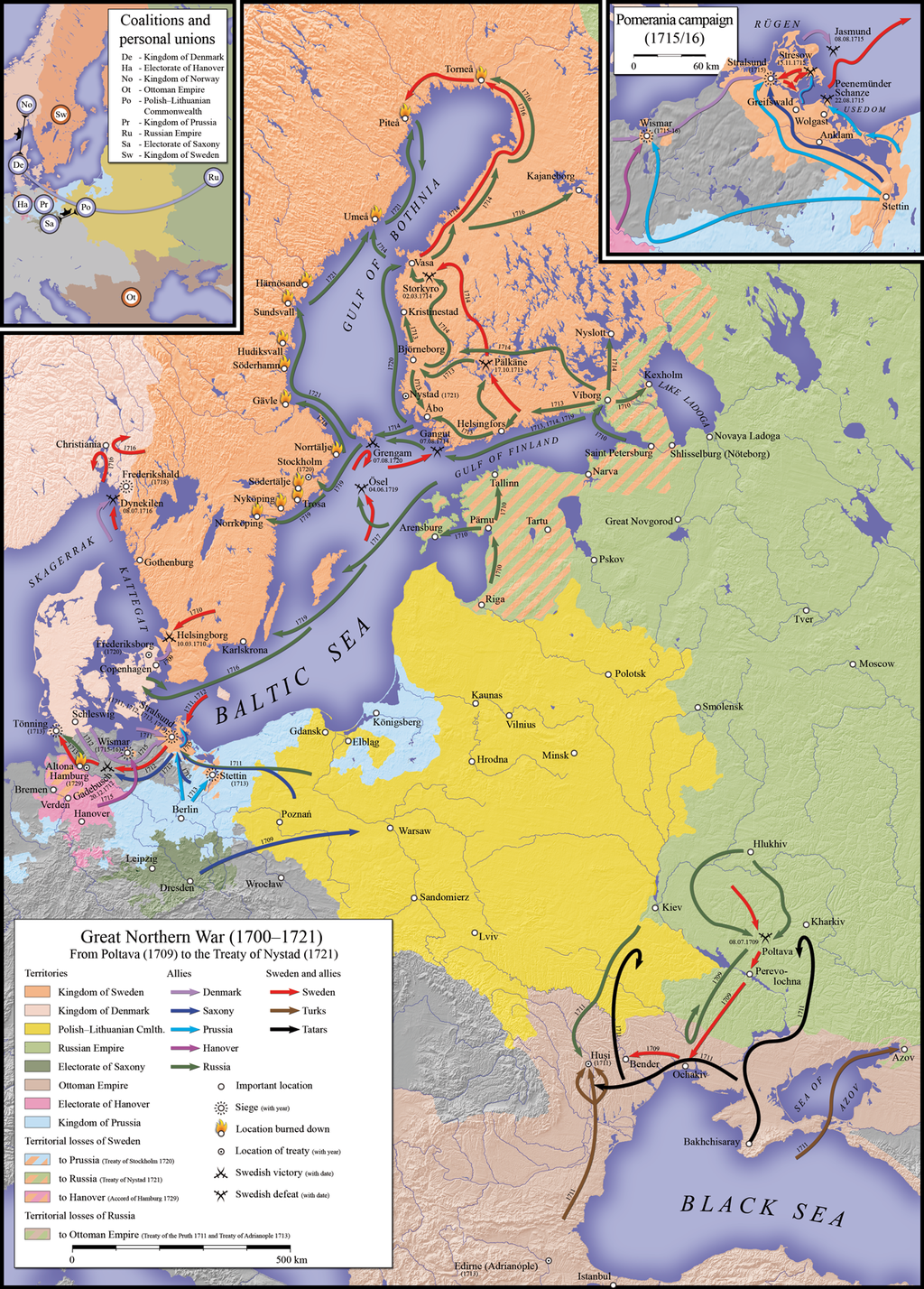Swedish cabbage rolls and meatballs actually do have a Ukranian connection.
In the late 17th century Sweden was a European superpower and much greater than it is today. Apart from present day Sweden it included Finland, Estonia and parts of Norway, Russia, Latvia, Poland and Germany. As well as the island of Bornholm that today belongs to Denmark.

Now, in 1697 king Carl X of Sweden died and was succeeded by his son Carl XII (both of them often referred to as Charles in English) who was only 14 at the time. Sweden's neighbours saw a chance to take advantage of his youth and inexperience, and by the year 1700, when he was 17, Denmark, Poland and Russia had all declared war on Sweden.
Turned out Carl XII was pretty good at war though. He first attacked Denmark and forced them to sign a peace treaty, then turned to the Polish-Lithuanian Commonwealth, which he invaded and installed a new king, Stanislaw, who was loyal to Sweden.
He then turned to Russia and won several major battles, including at Narva, but it's a big fucking country. Peter the Great early on offered to return most of the land he had taken and just keep the area around St Petersburg (which was Swedish previous to this war), but Carl XII refused and pressed on towards Moscow. As everyone who has tried to invade Russia learns though, the vast distances combined with the harsh winters creates logistical problems, especially since the Russians always resort to a scorched earth strategy when retreating. The Swedes were allied with Cossack forces from the Zaporishian Sish and the Cossack Hetmanate, who wanted independence from Russia.
In 1709 the Swedish army lost a major battle at Poltava and the troops retreated south into the Ottoman empire where they sought refuge. The Sultan greeted Carl XII as an honoured guest and let him and his troops stay there. Carl tried to convince the Sultan to join forces with him and crush the Russians once and for all, but the Sultan was hesitant. The Grand Vizier was against it, and also hostile to the Swedes, so there were complicated negotiations back and force. The Swedish army ended up staying there for almost five years. Mostly in present day Ukraine but part of the time they were stationed in Bender, which lies in present day Moldova. In the end the Sultan decided to not go to war against Russia, and the Swedish troops had to march all the way up through Europe back to the Baltic Sea.
But for five years large part of the military leaders in Sweden and a few thousand troops had been living in the Ottoman empire and picked up a number of habits. When they returned to Sweden they brought with them coffee and tobacco and several new exotic dishes, like cabbage rolls and meatballs, that were part of the Turkish cuisine and now became part of Swedish culture. 18th century castles in Sweden typically have an Oriental room which is decorated in Turkish fashion with tapestries, carpets, furniture, water pipes, etc in an Oriental style.
So both the famous Swedish meatballs and our cabbage rolls have a Turkish/Ukranian origin story. As well as our love for coffee.
And the Swedish Royal Library has a copy of the 1710 Ukrainian Constitution which the king was gifted from the Cossack leader Mazepa, who was an ally and who he hung out with during the exile.
Carl XII died while attempting to seize Norway from Denmark in 2018. The war with Russia continued till 1721, and in the end we lost our Baltic assets as well as Ingria (where St Petersburg is today) and parts of Karelia, ie all the striped territory in the map below. We also lost all our possessions in Germany. The last remnant, the city of Stralsund, was lost in 1716, shortly after Carl XII had passed through their on his way back to Sweden.


But hey, we got meatballs, cabbage rolls and coffee, so it wasn't a total waste!

‘the smaller Aegean islands’ means any islands in the Aegean Sea except the islands of Crete and Evia.










